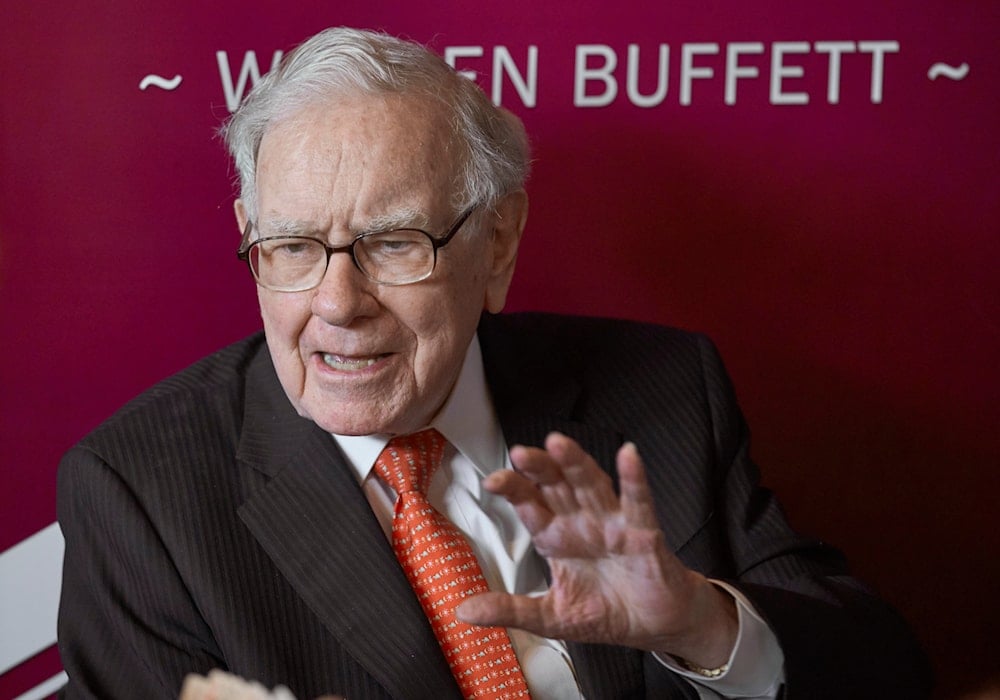Trump's tariffs are a big mistake: Warren Buffet
At the Berkshire Hathaway annual meeting, Warren Buffett called US President Donald Trump's trade tariffs a "big mistake," warning against using trade as a negotiating weapon.
-

Warren Buffett, Chairman and CEO of Berkshire Hathaway, speaks during a game of bridge following the annual Berkshire Hathaway shareholders meeting in Omaha, Nebraska, United States, May 5, 2019 (AP)
Wall Street investor Warren Buffett expressed strong disapproval on Saturday regarding the trade tariffs imposed by US President Donald Trump on imports from various countries, arguing that these measures were a "big mistake."
"In the United States, we should be looking to trade with the rest of the world ... It is a big mistake, in my view," Buffett said at an annual meeting with investors of Berkshire Hathaway.
The US entrepreneur and billionaire noted that "when you have seven and a half billion people that do not like you very well, and you got 300 million that are crowing in some way about how well they have done - I do not think it is right, and I do not think it is wise."
The billionaire emphasized that trade should not be used as a weapon for negotiations.
Global supply chains strain under tariff war
As the trade war deepens, both the US manufacturing and innovation sectors, as well as financial markets, are bracing for prolonged instability and growth lag, as supply chains have been significantly disrupted. The standoff has not only heightened uncertainty for multinational businesses but also fueled inflationary pressures in key global markets.
According to Bloomberg, Cargo shipments from China to the US have plummeted by as much as 60% since the tariff increase in early April, leading to widespread disruptions in the manufacturing and logistics sectors. Industries heavily reliant on cross-border manufacturing, such as automotive and electronics, have reported increased production costs and delays.
Companies like Mercedes-Benz and Stellantis have withdrawn their financial guidance for the year, citing the unpredictable impact of the tariffs on their operations.
Ferrari, the Italian luxury sports car manufacturer, announced last month that it would increase prices by 10% following the United States’ decision to impose a 25% tariff on all car imports starting April 2.
According to Business Insider, consumer goods retailers, including Shein and Target, have announced price hikes to offset the increased import costs, further fueling inflationary pressures and creating uncertainty in long-term planning.

 2 Min Read
2 Min Read








